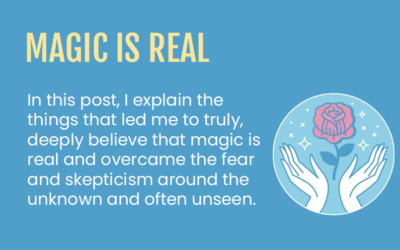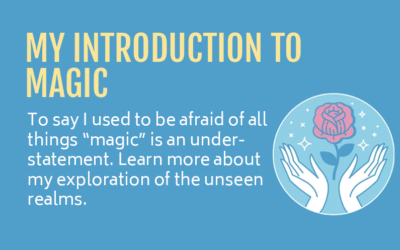Did you know that it’s the job of your mind to make your life a living hell? Okay, actually you’re doing that (innocently and subconsciously) and your mind is performing its job amazingly well. Let me explain.
Danger! We’re Going to Die
Our minds are like little toddlers who are slightly terrified of the world around them and therefore always on the lookout for danger. It does a beautiful job of noticing all the potential threats and sometimes blaring them like a siren insisting you pay attention so you don’t die. This built-in alarm system is great when there actually is a car driving right toward you and you need to be alerted so you get out of the hell out of the way. However, that’s rarely the case (unless you are trying to walk in downtown New York City and then it may very well be the case).
Unfortunately what your mind considers a threat is often not actually going to kill you or harm you in any way. Nonetheless, it screams, your entire body responds, and then the observer inside of you realizes there’s no harm and the sound you heard was simply a firework because it’s New Year’s Eve (or you live in Guatemala where they set off fireworks daily for any occasion imaginable, but without the pretty colors which therefore makes them basically just mini explosions).
The Narrator of All the Things
And similar to most toddlers our minds are a bit (or a lot) all over the place. Don’t believe me? Take a minute to actually pay attention to your mind. In an instant, we can hear it narrate every single thing we see or experience.
“Oh, there’s a cat on the chair beside me, he looks peaceful. I heard the milk frother on the coffee machine. Man, I want coffee, but I am cutting back on caffeine. Ah, a man just walked in. I like his blue yoga pants. I need some pants like that to help protect my legs from these damn vicious mosquitos. Did I put on bug spray this morning? I really hate having to wear DEET on our damn skin, but what else am I supposed to do with dengue in the area and the natural stuff not working. What, exactly, does having DEET on our skin cause? Likely cancer. Speaking of Cancer, I think there’s a new moon in Cancer this week. My former therapist was a Cancer and that didn’t go so well. I should check the InsightsTimer App and make sure my next live event is set for the right time. Why is time change even a thing?” And on and on and on and on it goes relentlessly. Clearly, this toddler talks non-fucking-stop.
After noticing all of that happen within like 15 seconds, another part of you may pop up asking logical questions such as “What, exactly, is the point of this nonstop chatter? Does it really add anything to our lives? It surely does make things quite crowded inside of here.” And that part of you is the observer of your mind – that’s you! Notice how that part of your mind is calmer, curious, and rather wise? It’s the adult in the room that the toddler desperately needs to calm down and feel safe.
Confirmation Bias and Making Shit Up
These slightly fearful toddlers who are all over the place also wish to please us by confirming what we believe to be true. Our minds are magical, mysterious, brilliant, and quite annoying phenomena. If we think Susie doesn’t like us then every time we get around her our mind looks for proof that she in fact does not like us. “Did you see how she smiled weirdly whenever I said hello to her? Why does she hate me? I bet Jane told her something about me that’s not true.” And off it goes again creating its own, often very untrue, story. Why? Because you gave it the task of confirming that Susie doesn’t like you. Success.
The thing about our minds is that they only know what they know. Therefore, if there’s a piece of the puzzle missing our mind literally just makes shit up (like the current state of most publicly accessible artificial intelligence algorithms). Does it know what Susie is really thinking about? Nope, so let’s just make up that she clearly hates us. The same thing can happen when you meet new people. You’ve spent maybe 10 minutes with this person and your mind is already putting them into categories because that makes your mind feel safer, even if the broad assumptions being made are very unlikely to be based on facts and truth. It’s truly madness when you look at it from a logical point of view.
The Merry Go Round
When we believe something to be true and we give our mind the task of confirming our beliefs, we find ourselves experiencing the same situations over and over again just with different people or in different circumstances. Then we take that information in as confirmation of our preexisting beliefs.
So if our minds are looking for proof of what we believe and our beliefs aren’t changing because of our thoughts and experiences, then we are stuck in this pathway of continuing to repeat the same things over and over again. Yet we wonder why we get into the same types of relationships, why our friendships have the same problems, and why our jobs tend to have the same dilemmas even if in different industries.
Some Science of the Brain
The way the mind works is our thoughts lead to our feelings. Then your feelings lead to more, similar thoughts related to those same feelings. It’s a mostly subconscious loop. These looping thoughts become redundant over time and hardwire your brain into these circuits that are basically your most typical neuropathways. If you wake up each day wondering why you’re feeling the same way and things don’t seem to be shifting, this is why. Energy flows through the most open and worn pathways, it’s simply nature.
This cycle can become so ingrained in our system that we are subconsciously living in the past; therefore, the conscious mind is not at all running the show. Instead, the same paths continue to repeat and the only way to change these energetic pathways and obtain a real shift is through a massive shift out of these familiar pathways.
Becoming the Observer
But what if there’s a better way? And that better way starts with you, the one inside of you who can observe the thoughts. The one behind your eyes who can choose to truly see what’s in front of you when you quiet the mind and focus on the present moment.
This quieting of the mind is the basic goal of meditation – to be still. You can find the importance and role of stillness in everything from Christianity to Buddhism. Psalm 46:10 declares, “Be still and know I am God.” And Buddah said, “…wisdom has something to do with maintaining stillness in the midst of the activity.” This stillness does not necessarily mean physical (although that can definitely help), it means a stillness of the mind from all the incessant chatter. It is here where you can find peace and where you can take your life back from the spiralings of the human mind.
Giving the Mind a Job
In addition to learning over time to be still, we can also give our minds a job to do to help keep them occupied. Instead of looking for worst-case scenarios, we can ask the mind to help us find beautiful things in our lives. For example, ask your mind over the next few days to find a beautiful piece of cobalt blue glass as you go about your days. Then watch and be amazed as your mind does exactly as you asked and helps you find some pretty blue glass. And then be prepared for your mind to tell you it was all just a big coincidence. Then when it does that, give it another job. This tool can be helpful as you learn to be more in the present moment and operate in a place of stillness, regardless of what is happening around you.
The truth is that taming the mind and allowing yourself to live more from your heart (rather than your mind) takes time and a lot of practice. But the first step is to simply start noticing its antics, observing what all it has to say, and then asking yourself honestly if that’s how you want to continue to live your life – blindly behind a toddler who is running the show. If not, there truly is a path to start miraculously changing your life for the better, getting you out of your patterns, and calling in your deepest desires. And that’s living more from your heart than your mind, which we will talk about more in the coming chapters.



